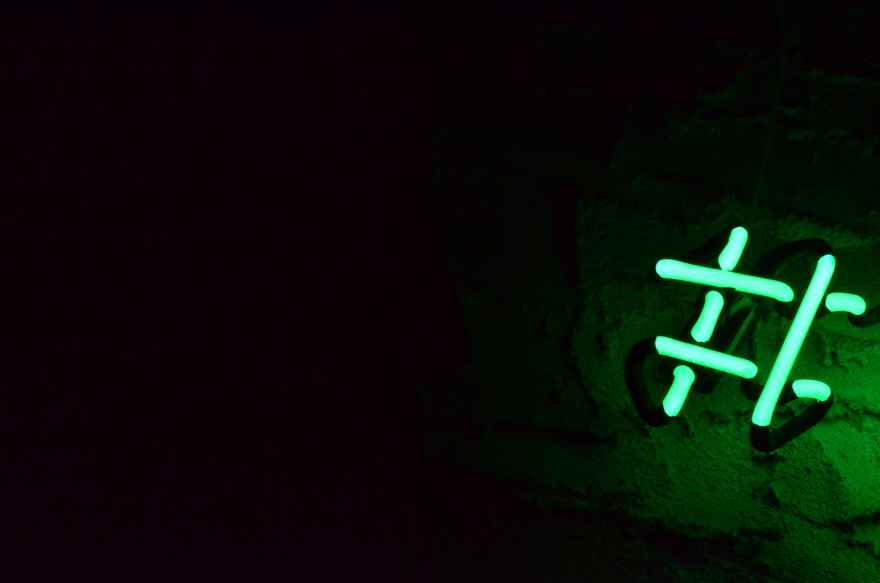Branding Your Event on Social Media with #Hashtags

Event planners and organizers are beginning to brand their events online using hashtags.
What is a hashtag?
Using the “#” sign and a word or phrase is a way for you to tell people and the social media searches what the theme of your content is. It’s a way for users to indicate that they are responding to or participating with, or even creating a new conversation or trend. They cover every topic from humor, to TV, business, politics, emotions, or even fans….you name it, and they exist! Watch this video for more information:
How do I create a hashtag?
While there is no official “hashtag registry” that you need to worry about, you will want to search on Twitter to see if the words or a phrase that you are thinking about is already being used. Embarrassing situations can occur if you don’t do your research first. What if the hashtag you’re using has already been used in a discussion about something negative? Or if it is associated with a natural disaster in another country, but you didn’t realize until after you sent your tweet?
What social media platforms use hashtags?
Facebook, Flickr, Google+, Instagram, Pinterest, Tout, Tumblr, and Twitter just to name a few.
Why should I use hashtags?
Because like it or not, they are here to stay! They drive user engagement and help spread your brand (event) online to an audience that you otherwise wouldn’t have access to. If you were to compare tweets with hashtags to tweets without, the hashtag-laden tweets would result in up to twice as much user engagement. This not only builds user engagement, but when the hashtag is used correctly, it builds your brand as the leading authority on that topic. Hashtags also serve a practical purpose, they can help you to gauge public opinion and wade through results that would otherwise be a great deal more difficult to track.
Tips for Creating a Hashtag.
Avoid numbers. Numbers confuse people!
Choose something obvious. Make it easy to spell and remember.
Stay away from overly generic hashtags. If you are too generic, then your conversation will get mixed up in other conversations, diluting the power of the hashtag.
Shorter is better.
Avoid words that are difficult to spell. If they can’t remember how to spell your hashtag, they won’t use it.
If it is an annual event, there is no need to include the year. It’s actually better if you don’t include the year! Remember your goal is to become an authority so leveraging past events will only help you when people begin searching your hashtag.
Remember, people only have 140 characters to use—the hashtag shouldn’t be too long or it will use most of your characters. While your hashtag is important, it’s not as important as the opinions they are sharing.
Promote the Hashtag.
Hashtags only work if people actually use them. Promote the hashtag:
Include it on your website.
Include it in your social media mentions.
Include it in traditional marketing materials.
Share it in pre-event emails.
Mention it at the event.
Have posters made with it and post them around the location.
Include it in the event program.
Put it on the nametags/lanyards.
Use it in the slide template.
Have the speakers mention the hashtag.
Display the posts.
Have the speakers reference their favorite posts.
And most importantly, make sure you are responding to people's posts by retweeting and replying!
Categories
- Blog Articles (156)
- Client Case Studies (18)
- Services Available by Omicle (8)
- Omicle In the Media (33)
- Brand Experience Strategy (48)
- Branding Strategies in Marketing (86)
- Customer Experience Strategy | CX Strategy (56)
- Develop a Growth Mindset Marketing (31)
- Effective Digital Marketing Strategy (55)
- Executive Personal Branding (37)
- Go To Market Strategy (31)
- Holiday Marketing Strategies (2)
- Category Design (2)
- Marketing Operations Strategy (16)
- Impact of Business on the Economy (56)
- Scaling Your Business (47)
- Scaling Your Business HUSTLE Stage (37)
- Scaling Your Business GROWTH Stage (41)
- Scaling Your Business TRANSFORM Stage (27)
- Importance of Diversity and Inclusion | DEI (3)
- INSIDE OUT Project: The New Board: It Doesn't Hurt to Be Different (5)
- Multi-Generational Marketing Strategy (11)
- Social Media Marketing Strategy (43)
- Strategies to Build Brand Loyalty (34)
- Guest Post (6)
- Hiring a Fractional CMO or Marketing Agency (11)

